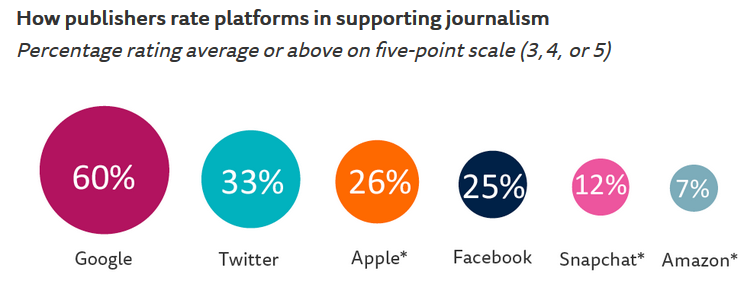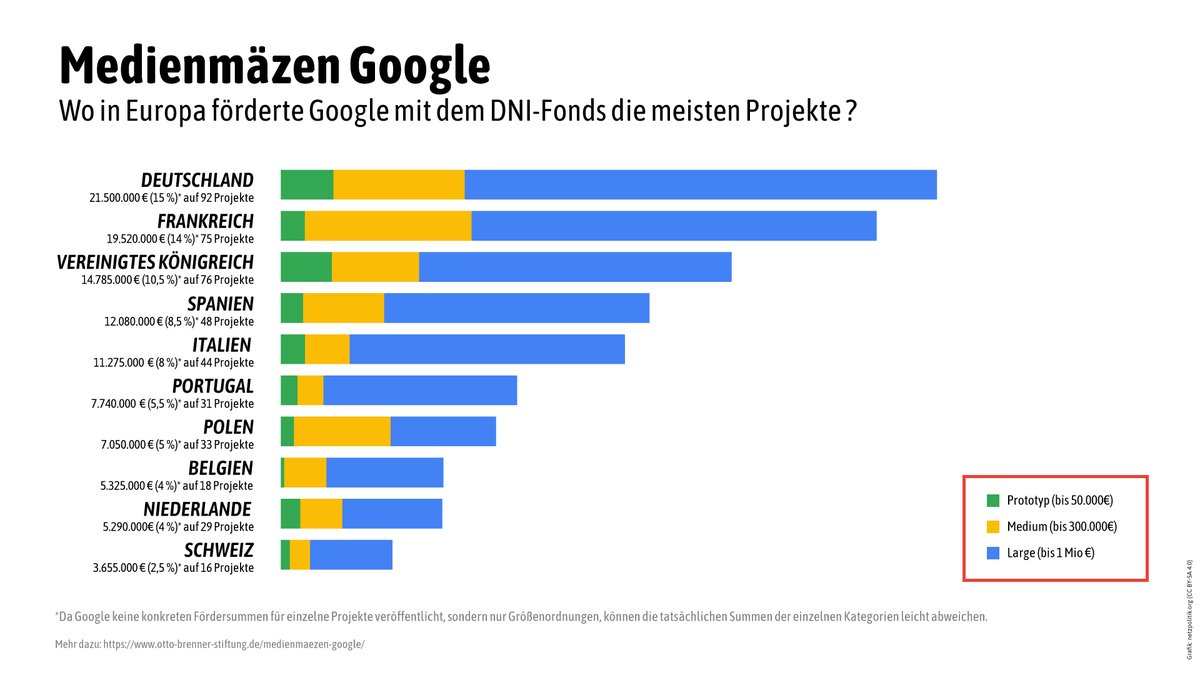One can learn much from Google.
For instance how to outsmart the publishing industry.
@roofjoke and I spent the past months studying Google's 7-year-campaign to neutralise its adversaries among the world's leading media firms with strategic gifts. Here is what we learned:
For instance how to outsmart the publishing industry.
@roofjoke and I spent the past months studying Google's 7-year-campaign to neutralise its adversaries among the world's leading media firms with strategic gifts. Here is what we learned:
1. Since 2013, Google gave 200m. € in no-strings cash to media after a few EU countries tried to tax Google more heavily. After a pilot media fund in France, Google rolled out a Europe-wide Digital News Initiative (DNI) which gave millions for 'innovation projects' in news orgs.
2. Over the past year, Google bankrolled publisher's shiny new paywalls and fancy podcast apps as well as hosting hip events from Lisbon to Helsinki. This has made G. the most popular Big Tech firm among publishers.
3. The bulk of Google's DNI money went to old, established companies in Germany, the UK, France and Italy, our data shows. It temporarily helped to silence publisher's demands for taxes on digital advertising in France & Italy, but failed to prevent ancillary copyright in EU law.
4. Google does not just pay out cash gifts to publishers, it also funds fellowships, media conferences and journalism research. This has helped to create a media bubble where Google's influence is tricky to discuss because the company has bought a seat at the table.
5. Media executives in Germany we interviewed see this as PR exercise on the part of Google, but they still take the money because they say that is the only way to pay for innovation. “Well, we wouldn’t have done it otherwise, because we simply can’t afford it”, one manager said.
6. Since 2019, Google has taken its News Initiative Global and now hands out money to publishers around the world. This has created some interesting questions, especially around funds to media in places with autocratic government and less-than-stellar press freedom.
7. Meanwhile, Google keeps rolling out new publishing products such as Subscribe for Google. With Facebook withering as source of referral traffic, search grows in importance for news distribution. And Google is still dominant in ads, taking a cut from nearly every 2nd page view.
8. All this shows the growing importance for Google in the business of journalism. It's almost as if the tech giant was building a new operating system, JournalismOS.
9. Last week Google launched a new tool to help investigative journalists. I kept thinking, with big questions around Google's monopoly power, data privacy or ties with US military and intelligence - shouldn't journalists *investigate Google* instead of accepting their help?
The points above are drawn from a new study we published today with @obs and the help of @dgb_news. It is available in German, an English edition will follow. Klick here for a 3-page English summary of the main findings: https://netzpolitik.org/wp-upload/2020/10/AH103_Google_Executive_Summary_ENG.pdf https://twitter.com/OBSFrankfurt/status/1320616740112470017?s=20
The full version of our study is now available in English. It gives a comprehensive overview over Google's journalism funding over the past few years in Europe and shows how the tech company has used it to court influence with publishing companies. See: https://www.otto-brenner-stiftung.de/wissenschaftsportal/publikationen/titel/google-the-media-patron/aktion/show/obspaec/Publication/

 Read on Twitter
Read on Twitter




